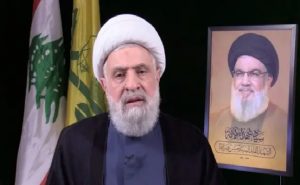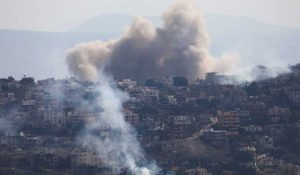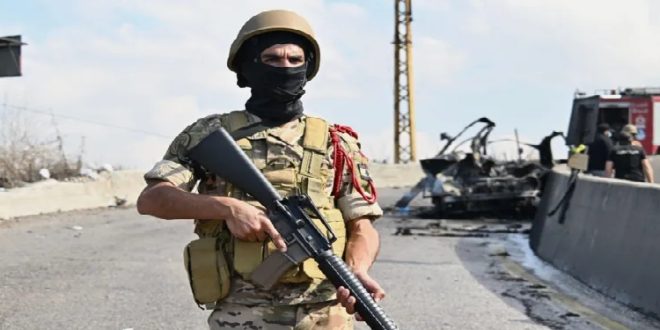02-11-2024
BEIRUT/ JERUSALEM: Senior American officials have returned to the Middle East to try to reach a ceasefire between Israel and Hezbollah in Lebanon.
US Secretary of State Antony Blinken said the negotiators had made “good progress” on Thursday on a potential deal.
 Brett McGurk, President Biden’s Middle East coordinator, and Amos Hochstein, who has led negotiations in the conflict with Hezbollah, are in Israel for talks with the country’s authorities, although it was not clear whether any progress could be made ahead of the US presidential election, next week.
Brett McGurk, President Biden’s Middle East coordinator, and Amos Hochstein, who has led negotiations in the conflict with Hezbollah, are in Israel for talks with the country’s authorities, although it was not clear whether any progress could be made ahead of the US presidential election, next week.
Since the conflict escalated five weeks ago, Israel has launched widespread air strikes across Lebanon and a ground invasion of areas near the border.
At least 2,200 people have been killed in the country, according to the Lebanese health ministry, and 1.2 million displaced, mostly Shia Muslims, heightening sectarian tensions and adding pressure on public services that were already struggling after years of a severe economic crisis.
The Israeli government says its goal is to change the security situation along the border and guarantee the return of around 60,000 residents who have been displaced because of Hezbollah’s rocket, missile and drone attacks.
On Wednesday, Israeli public broadcaster Kan published what it said was a draft agreement, written by Washington and dated Saturday, for an initial 60-day ceasefire.
Israel would withdraw its forces from Lebanon within the first week of the deal, and the Lebanese army would be deployed along the border. During the pause, Hezbollah would end its armed presence in the area.
The objective is to pave the way for the full implementation of United Nations Resolution 1701, which ended the 34-day war between Israel and Hezbollah in 2006.
The text, among other things, called for the removal of all armed groups, including Hezbollah, from the area south of the Litani River, 30km (20 miles) north of the border. Only the UN peacekeeping force known as Unifil and the Lebanese army would be allowed there.
 Israel, however, distrustful that the Lebanese army and UN peacekeepers will be able to keep Hezbollah away from the border, reportedly wants to be given the right to strike the group if needed after the end of the war. This demand is likely to be rejected by the Lebanese authorities, who say there should be no changes to Resolution 1701.
Israel, however, distrustful that the Lebanese army and UN peacekeepers will be able to keep Hezbollah away from the border, reportedly wants to be given the right to strike the group if needed after the end of the war. This demand is likely to be rejected by the Lebanese authorities, who say there should be no changes to Resolution 1701.
When asked about the document reported by Kan, White House national security spokesperson Sean Savett said there were “many reports and drafts circulating” that “do not reflect the current state of negotiations”. He did not, however, respond to a question about whether that text was the basis for further talks.
Commenting on the negotiations, Secretary Blinken said there had been progress made on mutual understanding of the requirements of the resolution.
“It’s important to make sure we have clarity, both from Lebanon and from Israel, about what would be required under 1701 to get its effective implementation,” he said during a press conference.
Hezbollah, a powerful militia and political party which is armed and financially supported by Iran, faces domestic pressure for a deal, particularly from critics who say the group dragged Lebanon into a conflict which was not in the country’s interests. Israel’s bombardments have killed most of the Hezbollah leadership, including long-time chief Hassan Nasrallah, and brought extensive destruction to areas of southern Lebanon, the eastern Bekaa Valley and Beirut’s southern suburbs, where the group holds sway. (Int’l Monitoring Desk)
 Pressmediaofindia
Pressmediaofindia




